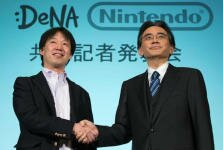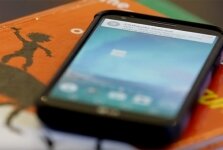
Sony Corp.’s joyless holiday season continued to sour Friday, as the entertainment giant endured the second day of yet another cyberattack, this one taking down the online PlayStation Network used by millions of video game players.
The attack, which began on Christmas Day, prevented gamers from accessing the system where they can play such popular titles as “Madden” or “Call of Duty” with opponents across the world.
At the Fields Corner Game Stop, the usual post-Christmas crowd of customers making returns and exchanges also included some bewildered shoppers unsure why their new games weren’t working.
“There’s been a bunch of people coming in saying their systems are broken when in reality it’s just that the networks are down,” said store manager Nelson Vasquez.
Sony is still reeling from a separate attack that led it to briefly cancel the controversial movie “The Interview,” a spoof of North Korean dictator Kim Jong Un. Sony later reversed course in the face of widespread criticism that included a rebuke from President Obama.
The US government blamed North Korea for the Sony attacks.
In the latest cyberattack, a mysterious group called the Lizard Squad claimed responsibility. The outages also affected Microsoft’s Xbox Live. Together, the Xbox and PlayStation gaming networks have about 160 million members worldwide. Microsoft restored service to the Xbox Live network early Friday, but Sony said its PlayStation Network remained off-line Friday evening.
“We are aware that some users are experiencing difficulty logging into the PSN,” Sony posted on the PlayStation support site. “We will update this article with any changes that occur in regards to this issue. Thank you for your patience.”
The outage disappointed gamers who received Playstation or Xbox systems this holiday but were unable to access the online networks in order to boot up the games. Others were only able to play new games against a computer simulator or with friends or family members in the same room.
Game Stop shopper David Murray III, 19, said his excitement at receiving “Persona 4,” a fighting game, quickly dissolved when he turned on his PlayStation 3 on Christmas, hoping to challenge another user.
“I tried to sign in but it was taking really long — like a good three minutes — and then it told me there was an error and it just timed out,” Murray said.
Unable to role play as soldiers or star quarterbacks, some gamers left their usual indoor haunts and resorted to playing outdoors.
“I’m out here skating instead,” 18-year-old Louis Justiniano of Dorchester said Friday afternoon while skateboarding outside the Game Stop store in Fields Corner. “When it don’t work, I just go out.”
Cybersecurity analysts said the latest attacks appeared to be distributed denial of service, or DDoS, in which the hackers bombard the targeted site with so much traffic that the network crashes. However, it does not appear any personal information was exposed during these attacks.
“DDoS is a very serious and frustrating problem because it’s so easy to launch these attacks,” said Brian Krebs, a computer security researcher and author of the book “Spam Nation.” “In every case we’ve seen in the past, they’re a bunch of teenagers who live in their parents’ basements. These attacks are not sophisticated, and they let the kids who launch them feel like gods.”
Sony had already been dealing with a separate attack, stemming from “The Interview.’’
In late November a group calling itself Guardians of Peace released a trove of sensitive information stolen from Sony’s computers that included embarrassing e-mails from top executives, personal data about employees, and even the script for the upcoming James Bond film.
In December Guardians of Peace threatened to launch terrorist attacks against movie theaters showing “The Interview.” Within a day Sony called off the movie’s Christmas day premiere. The studio reversed that decision in part — a handful of theaters agreed to show the film, and it can be rented and viewed over the Internet.
The Sony network was hit with a massive cyberattack in 2011 that also exposed the personal information of tens of millions of online Playstation gamers.
This week’s attack on Xbox and PlayStation was signaled in early December, when the Lizard Squad group claimed responsibility for separate attacks on the PlayStation and Xbox Live networks and posted a warning on Twitter: “That’s a small dose of what’s to come on Christmas.”
In disabling the network this week, hackers removed one of gaming’s chief appeals: the ability to test one’s skill against a friend down the street or an unknown user in another country. In addition to connecting players in different locations, the PlayStation Network also serves as an online marketplace where users can download games and movies.
An annoyance for gamers, the network outage can be devastating for small video game studios if it drags on. Many developers do not sell their games in stores but market them only through online platforms such as PlayStation Network and Xbox Live. No connection means no sales.
Cambridge-based Fire Hose Games knows the toll a prolonged outage can take. During the 2011 PlayStation attack, which lasted three weeks, the company laid off three workers — a third of its staff.
“With the service down, we had a new game out that no one could actually buy,” recalled Sean Baptiste, the studio’s marketing director. “Sony is a good partner that did their best, but that attack was extremely hard on small developers who depend on online platform sales. We’re very fortunate to still exist.”
Iouless Rivera, 17, had planned to buy games through the PlayStation Network on Christmas but could not. The Dorchester teen spent the holiday season saving his earnings from a job selling Christmas trees and bought himself a PlayStation 4.
Unable to download any games, he bought a title at the Game Stop in Dorchester Friday — “Sniper Elite III.”
The disc in his hand solved one problem, but then Rivera remembered another.
“I only got one controller,” he said, “so I guess I’ll play by myself.”



